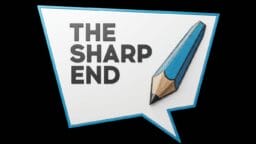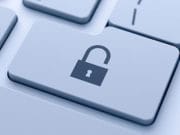Cognizant Implements Employee Monitoring Software Amid Growing Industry Trend
In a significant move, Cognizant has reportedly unveiled a new software solution aimed at monitoring employee behavior on company-issued laptops and desktop computers.
This initiative, which appears to align with similar strategies adopted by Wipro and LTIMindtree, leverages tools from ProHance, a prominent workforce management platform. Below, we delve into the particulars of this development.
The Information Technology (IT) sector is witnessing a surge in the utilization of tracking tools designed to evaluate productivity.
Cognizant, alongside its industry contemporaries, has embraced this trend by implementing software that meticulously analyzes how employees engage with their digital workspaces.
Despite reports of this tracking initiative, Cognizant has publicly refuted claims that it employs these tools to assess individual employee performance.
Yet, what does this practice entail? How does it function, and what are the sentiments expressed by employees regarding its implementation? Let us examine these questions more closely.
Examining Cognizant’s Rationale for Employee Monitoring
Sources indicate that Cognizant aims to evaluate the productivity levels of its workforce through this software. Specifically, the tool records how actively employees use their laptops, along with the applications and websites they access. This monitoring framework was reportedly initiated about a month ago.
Within this system, employees may be classified as ‘idle’ if there is no keyboard or mouse activity for a duration exceeding five minutes.
Furthermore, after fifteen uninterrupted minutes of inactivity, employees are marked as “away from their desk.” Initial reports suggest that this tracking system will be gradually implemented, with the rollout varying by team.
Concerns Among Employees and Privacy Advocates
This recent shift has elicited a palpable sense of unease among Cognizant employees, who harbor concerns that such tracking mechanisms may eventually be employed for performance evaluations.
Several employees reported being required to complete a mandatory ProHance training module, which necessitated consent confirmation.
“We were given a compulsory course that included user acceptance; we had to click ‘I agree’ to finish the training,” commented one individual to Mint.
Amid these anxieties, there are apprehensions that the tool, while not presently a component of the evaluation process, may blur the distinction between ‘workload visibility’ and ‘micromanagement’.
Privacy advocates have underscored the necessity of scrutinizing the protocols surrounding data disclosure, storage, and application. They argue that such practices may adversely affect workplace culture by reducing professionals to mere data points on a performance dashboard.
Critics warn that incessant monitoring can inadvertently harm morale, prompting employees to prioritize compliance with tracking metrics over tangible outcomes.
Fundamental Goals of This Micro-Tracking Initiative
In defense of the initiative, Cognizant has elucidated that the underlying objective is to identify and rectify inefficiencies in operational processes.
A Cognizant spokesperson stated to Mint: We occasionally employ various productivity measurement tools — a standard industry practice — for specific business process management or automation projects at the behest of our clients.
This approach is intended to facilitate an understanding of client process steps and related time metrics to enhance process design.
The organization reassured its workforce that tracking through ProHance would not extend to monitoring individual performance post-consent.
According to reports, the primary intent of this initiative is to ensure that employees fulfill a designated number of work hours, notwithstanding breaks.

Both Cognizant and its clients are keen to enhance productivity, and this micro-tracking mechanism is posited to lend clarity to work patterns.
Cognizant is not operating in isolation; Tata Consultancy Services (TCS), the French IT giant Capgemini, and HCLTech are also reportedly using Sapience to monitor employee productivity.
Sources informed The Times of India that employees at Capgemini log their working hours using an electronic timesheet application and Sapience Buddy, which collects data on work habits and productivity.
Source link: Firstpost.com.






